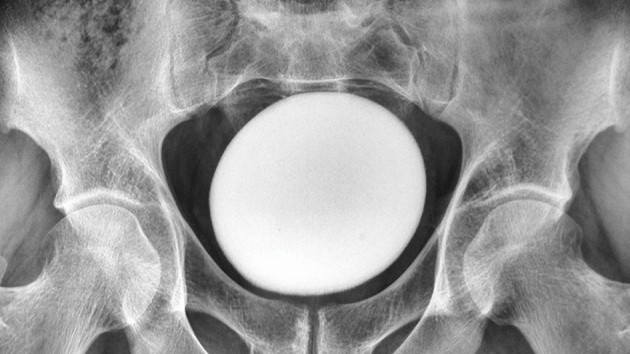Can the HPV Vaccine Protect Against Skin Cancer?

The HPV vaccine, which protects against several strains of the human papillomavirus, shows potential for preventing new spots of skin cancer from popping up in people who have had skin cancer in the past, a new report of two patients’ cases suggests.
Previous research has suggested that there's a link between HPV and certain types of skin cancer.
However, the study was very small, and more research in larger groups of patients is needed before scientists can determine if the HPV vaccine really does reduce skin cancer risk.
The two patients in the study had previously had skin cancer growths that were removed. Because of the previous research suggesting that HPV infections may play a role in the development of certain types of skin cancer, the researchers wanted to see if the HPV vaccine could help prevent these cancers in these two patients, according to the study, which was published today (Feb. 8) in the journal JAMA Dermatology.
To find out, the researchers gave three doses of the vaccine to the two individuals, who both had healthy immune systems. The patients then underwent skin examinations to look for new cancers every three months for up to 16 months after their first dose of the vaccine. The researchers compared the number of new skin cancer growths the patients developed during this time to the number they developed over the same length of time before they received the vaccine, according to the report.
After receiving the vaccine, both patients developed fewer basal cell carcinomas and squamous cell carcinomas — the two most common skin cancers — compared with before they received the HPV vaccine, according to the study. [5 Things You Must Know About Skin Cancer]
"To our knowledge, this is the first report" of the HPV vaccine being used to prevent these types of skin cancer, the researchers, led by Dr. Anna Nichols, a dermatologist at the University of Miami, wrote in the report. The findings suggest that these types of skin cancer "may be driven, in part," by HPV, they wrote.
Get the world’s most fascinating discoveries delivered straight to your inbox.
More than 5 million cases of basal cell carcinoma and squamous cell carcinoma are diagnosed in the United States each year, according to the Skin Cancer Foundation. These types of skin cancers are much less deadly than another type of skin cancer, melanoma. (Basal cells and squamous cells are two types of skin cells.)
One of the patients in the new study was a man in his 70s, and before he received the HPV vaccine, he developed 12 new cases of squamous cell carcinoma and 2.25 new cases of basal cell carcinoma yearly on average, according to the report. After he was vaccinated, the man developed, on average, 4.4 new cases of squamous cell carcinoma and no new cases of basal cell carcinoma yearly, the researchers found. In other words, the vaccine was linked to about a 60 percent reduction in squamous cell carcinomas, and a 100 percent reduction in basal cell carcinomas, in this patient.
The second patient was a woman in her 80s who had developed, on average, 5.5 new squamous cell carcinomas and 0.92 basal cell carcinomas yearly before she received the HPV vaccine, the researchers wrote. After receiving the vaccine, she developed, on average, 1.8 squamous cell carcinomas yearly and no new cases of basal cell carcinoma, the researchers found. This represented about a two-thirds reduction in squamous cell carcinomas and a 100 percent reduction in basal cell carcinomas, according to the report.
The researchers noted that neither of the two patients had any bad reactions to the vaccine. [5 Dangerous Vaccination Myths]
Previous research has suggested that the human papillomavirus may play a role in the development of squamous cell carcinomas in patients with weakened immune systems, the researchers wrote. But the new findings suggest it may also play a role in the development of this type of cancer in patients with healthy immune systems, according to the report.
Although it's not entirely clear how HPV may be linked to skin cancer development, one idea is that the virus could make skin cells more vulnerable to damage from UV rays, the researchers wrote. One study published in the journal PLOS Pathogens, for example, found that mice infected with the virus were more likely to develop cancer after being exposed to UV light than mice that did not have the virus, according to the study.
Originally published on Live Science.




